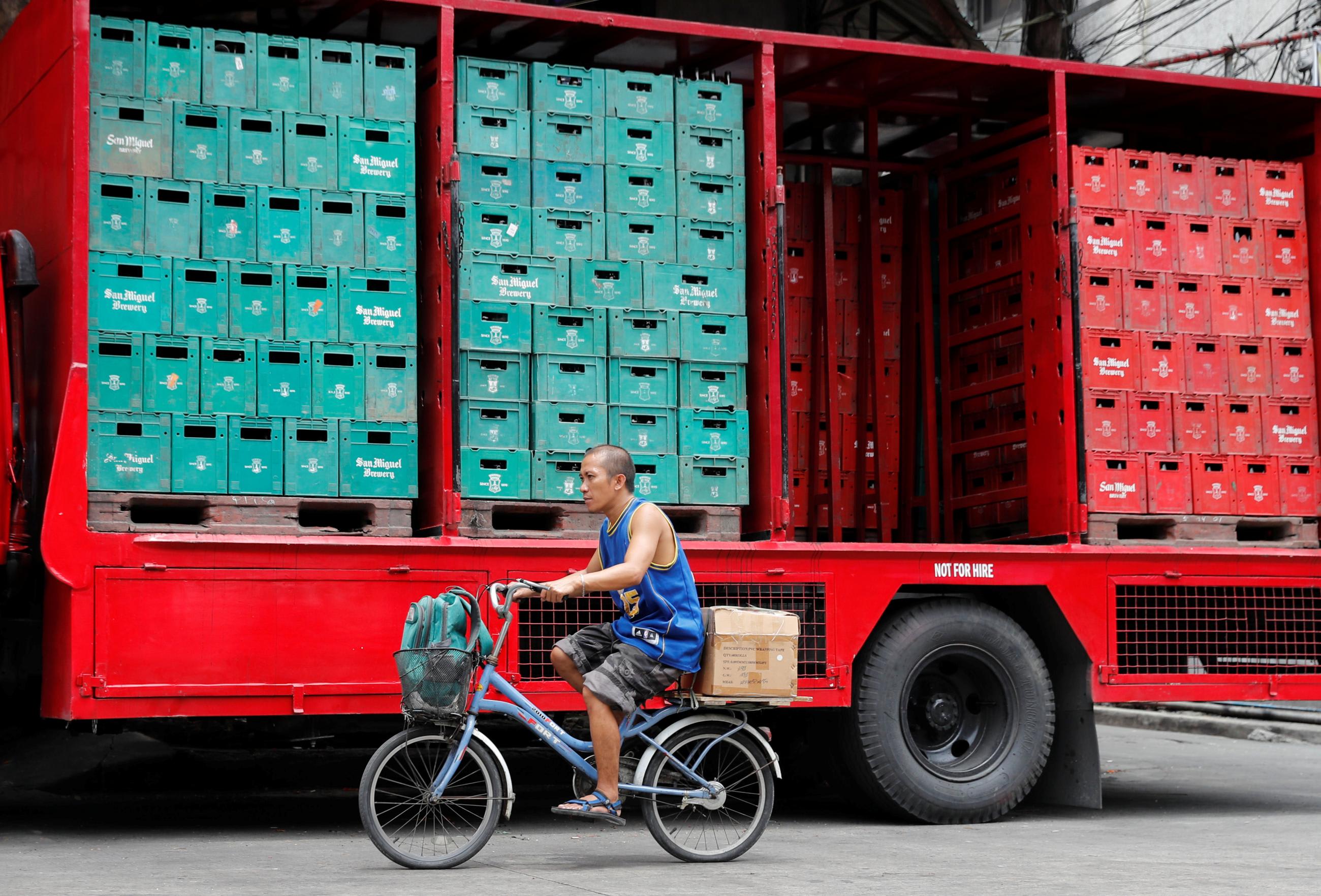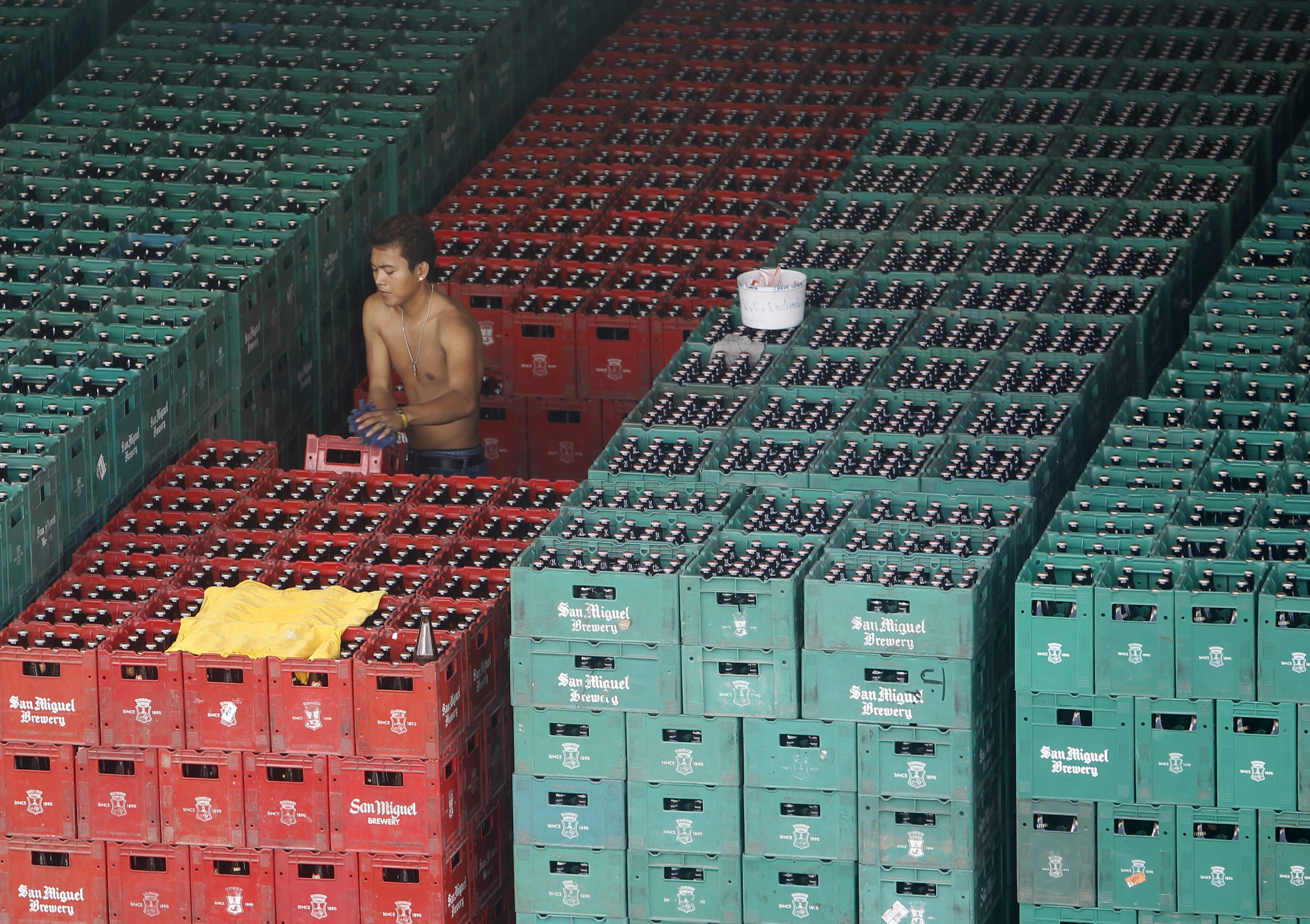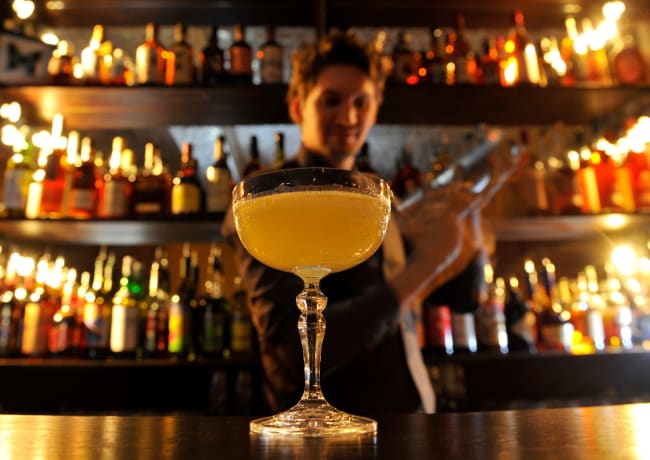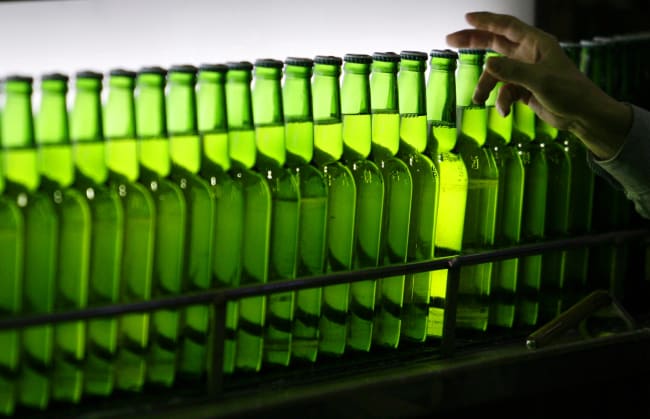Despite the cost and harm alcohol consumption causes in the Philippines, alcohol companies there are deeply intertwined with the national government in decades-old relationships that only deepened during the COVID-19 pandemic.
San Miguel, one of the largest alcohol companies in the Philippines, promotes its products with a tagline that references a "shared history" with the Filipino people. But given how dearly it costs the government and the community, it is also a shared suffering.
Alcohol in Philippine Culture and History
Alcohol consumption harms Filipinos and society. The Institute of Health Metrics and Evaluation estimate that in 2019, 39,802 Filipinos died from causes attributable to drinking, and each year the government picks up the tab for an estimated PHP 200 billion ($3.5 billion) for treating alcohol-related illnesses, policing alcohol-involved crimes, and covering burial expenses for those killed by drinking.
39,802 Filipinos died from causes linked to drinking in 2019
Many, though, are blind to these harms because alcohol consumption is so deeply ingrained in Filipino culture. With the exception of the Muslim minority, most Filipinos view drinking as an important part of their heritage and a key element of the nation's tourism industry. Filipinos often give bottles of liquor as gifts and serve them at birthdays, baptisms, weddings, reunions, and wakes. In big Philippine cities, people drinking outside of neighborhood convenience stores or in front of their houses are a common sight. All these habits are normalized by ubiquitous alcohol marketing.
Alcohol production in the Philippines has its roots in the country's colonial history. San Miguel, the country's oldest brewery, was founded in 1890 and has since evolved into the San Miguel Corporation, one of the country's largest conglomerates. It owns the country's oldest gin producer, Ginebra San Miguel, and has an extensive distribution network that ensures its products reach far-flung places. This inspired its marketing tagline "kahit saan, kahit kailan," which translates to "anywhere, anytime."
San Miguel Corporation has also come to be associated with the country's favorite sport, basketball, because it owns two of the top teams in the country, which are named after their products—San Miguel Beermen and Barangay Ginebra San Miguel. San Miguel Beer's month-long Oktoberfest, which began in 1982, has been recognized by the Department of Tourism as an official Philippine festival.
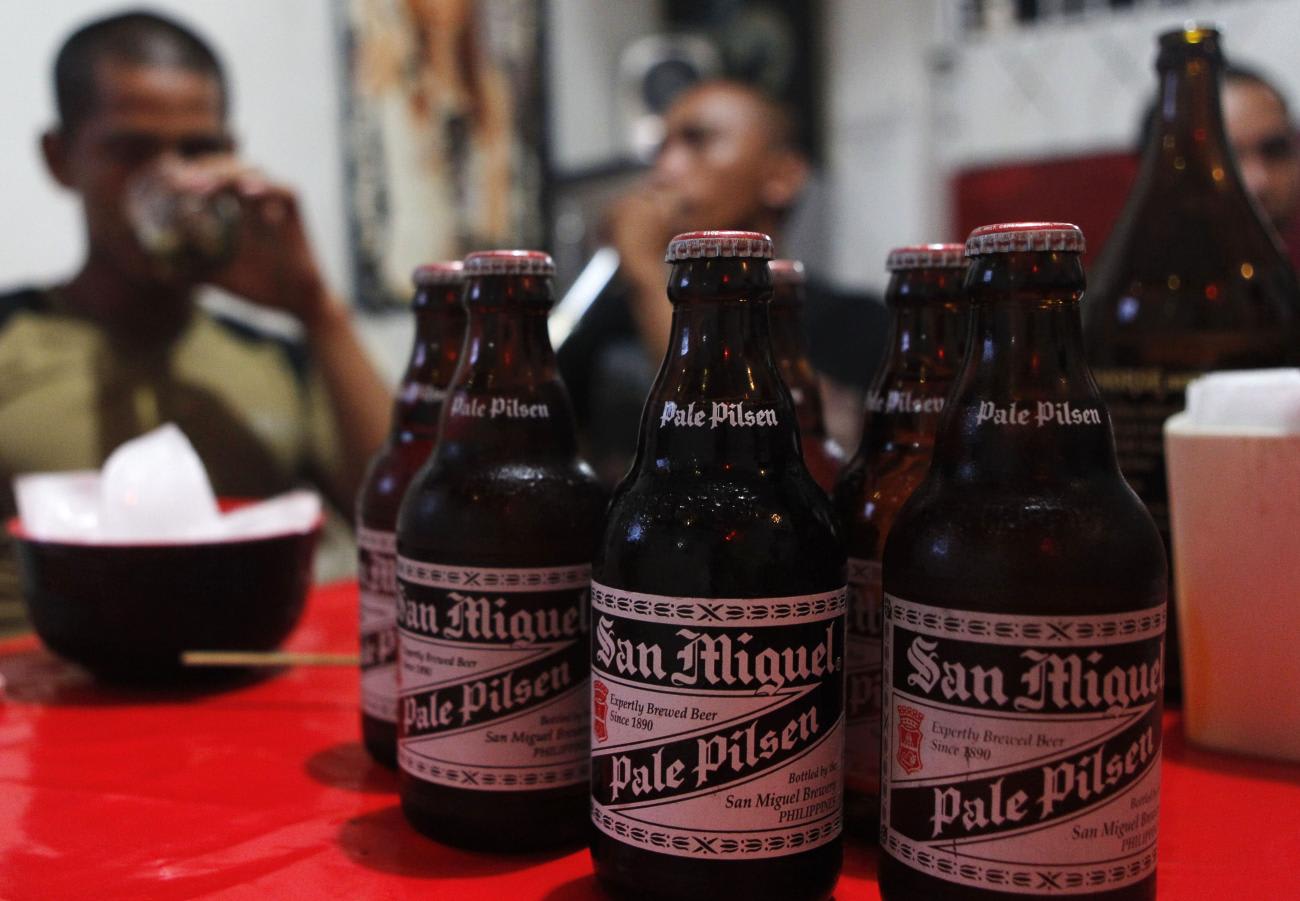
Another major producer is the Lucio Tan Group. One of its subsidiaries, Tanduay Distillers, was founded in 1854 and has a near monopoly on the local rum market, producing rum, gin, vodka, brandy, and whiskey as well. Another subsidiary, Asia Brewery, both manufactures beer, alcopops, and hard seltzer and distributes imported beers.
The Problem With Marketing Corporate Social Responsibility
The San Miguel Corporation and the Lucio Tan Group have presented themselves as socially responsible companies, which increases their sales among women, but have been criticized for developing and marketing products that appeal to youth and children.
The alcohol industry has portrayed itself as a partner of the national government in sustainable development, aligning with the UN Sustainable Development Goals which they claim to be advancing them in their annual reports. In times of disasters and emergencies—which are frequent in the Philippines—the industry has provided a helping hand to earn goodwill. For example, San Miguel Corporation's Team Malasakit program partnered with the government to help victims affected by the eruption of Mayon Volcano. San Miguel Brewery has also donated amphibious vehicles, rubber boats, and rubber boat carriers to the Philippine Navy and the Philippine Coast Guard for disaster rescue operations.
In 1972, San Miguel Corporation established a corporate social responsibility arm, the San Miguel Foundation, which runs programs addressing health, education, the environment, disaster relief, and more. It has branded this work as malasakit, the Filipino word for concern or empathy. The foundation has branded its community development projects as BEER: barangay (the Filipino term for the smallest unit of local government unit) strengthening, enterprise development, education, and reforestation.
In times of disasters and emergencies—which are frequent in the Philippines—the industry has provided a helping hand to earn goodwill
Similarly, the Lucio Tan Group established the Tan Yan Kee Foundation, through which it funds various education, health, relief, and environmental programs. This foundation was particularly active helping the victims of typhoons Ketsana (2009), Haiyan (2014), and of the eruption of Taal Volcano in Batangas in 2020.
A Pandemic and Alcohol Don't Mix
During COVID-19, drinking caused even greater harm to Filipinos. In 2021, Department of Health survey showed that an estimated 40 percent of Filipino adults reported drinking alcohol in the previous month (up from 38 percent in 2019) including 33 percent who engaged in heavy drinking sessions (up from 12 percent in 2016). The Department of Health reported that the share of transport injuries involving alcohol rose from 5.6 percent in 2019 to 6.8 percent in 2020.
The San Miguel Corporation and the Lucio Tan Group did not address these rising harms, however, and instead used the pandemic to burnish their image. The companies proudly announced donations to support national and local government responses to COVID-19, including in-kind help such as shifting production in their distilleries from spirits to alcohol for disinfection; politicians and the public praised them for helping out. Legislators in the Philippine Congress felt so indebted that they introduced a bill to institutionalize and reward companies for their corporate social responsibility programs. The measure would allow corporations to retain profits in excess of 100 percent of their paid-in capital stock of corporate social responsibility programs. The House of Representatives approved the bill in record time. It is currently pending in the Senate.
Meanwhile, the alcohol industry partnered with delivery partners such as Grab to deliver alcoholic beverage straight to consumers.
The Philippines continues to lack regulations on alcohol marketing
How to Tackle Alcohol's Harms
The Philippines have totally ignored the harms of alcohol or been powerless to tackle them. In 2012, the government took the positive step of directing alcohol tax revenue to fund universal health care, and in 2020 fully allocated the revenues from this tax to health, along with increased taxes on tobacco, sugar-sweetened beverages and e-cigarettes. The total revenue of these taxes tripled from PHP 34 billion in 2014 ($598 million) to PHP 93.6 billion ($1.65 billion) in 2020.
Alcohol taxation is a cost-effective measure for reducing excessive drinking but isn't enough to reduce the burden of alcohol-related diseases and injuries. The Philippines continues to lack regulations on alcohol marketing, relying instead on alcohol companies to regulate themselves with their own advertising code. It also has no regulations on online alcohol sales and delivery or laws mandating health warnings on alcohol products. The Philippines should reevaluate its alcohol control strategy.
For a start, the government could consider implementing a package of measures known by the acronym SAFER—measures that strengthen restrictions on alcohol availability; advance and enforce drink-driving counter measures; facilitate access to screening, brief interventions, and treatment; enforce bans or comprehensive restrictions on alcohol advertising, sponsorship, and promotion; and raise prices on alcohol through excise taxes and pricing policies. It could also restrict the alcohol industry from marketing its corporate social responsibility.
Researching alcohol policy is difficult, in part because few if any research grants are available for alcohol policy research in low- and middle-income countries in Southeast Asia. Only in 2022 did the nongovernmental organization Vital Strategies launch the RESET Alcohol Initiative, which aims to support projects promoting alcohol taxation.
The Philippines can still tackle its alcohol problem, of course. Doing so, however, will require not only political will but also backing from the research community, global health funders, and civil society, along with increased public awareness of alcohol-related harms.
